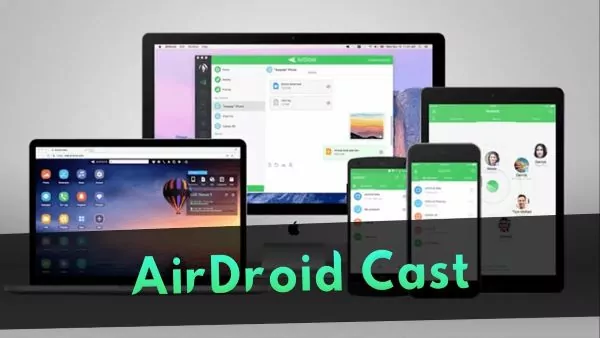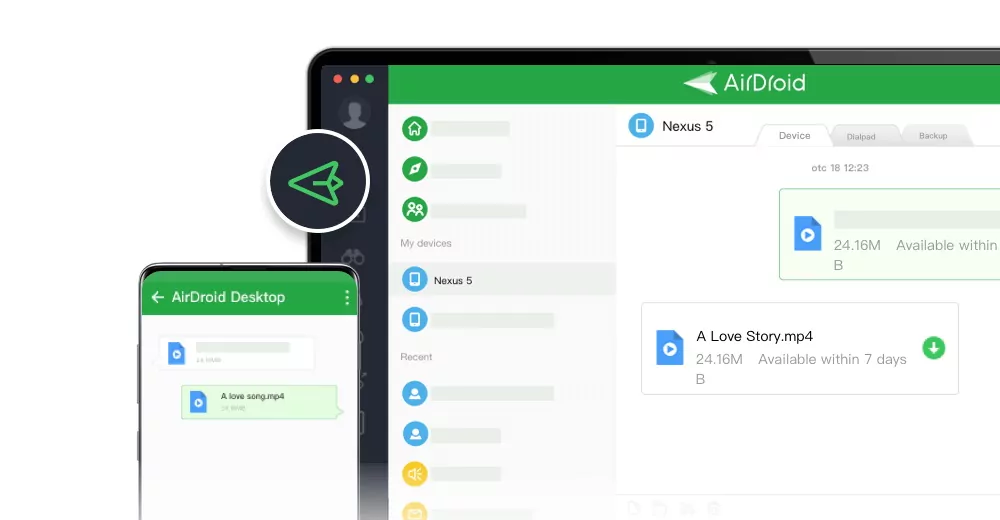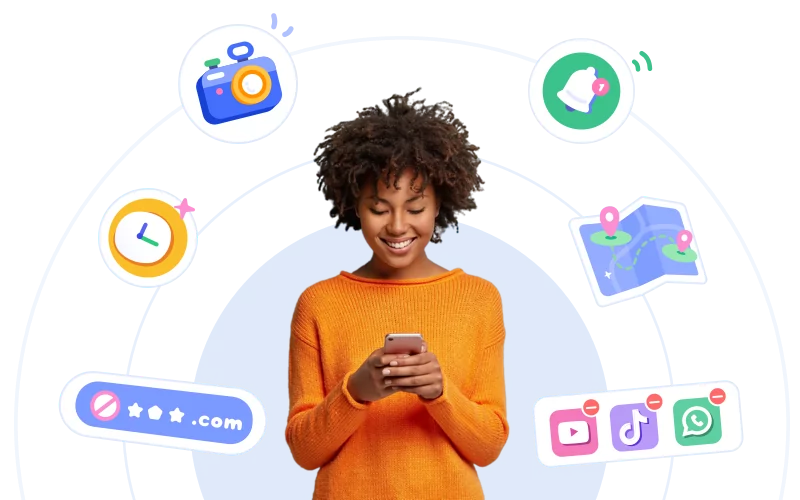Can iPhones Get Hacked? What You Need to Know
iPhones are among the most advanced devices globally, valued for both their aesthetic appeal and promised security advancements. Yet, the question remains: Can iPhones get hacked?
Despite Apple's security assurances, no device is immune to hacking threats. Let's explore what to do if this happens and how to prevent it.
What Do You Know About iPhone Security?
Apple doesn't entertain any random app to be downloaded via the app store. Strict security features and the almost monthly iOS updates don't let any fishy software touch any Apple device. On top of that, strong encryption systems in all apps secure the data completely.
These security measures make the iPhone less prone to hacking possibilities, but again, the possibility should be zero, not nearly ZERO.
Are iPhones Really Invulnerable?
Are iPhones Immune to Viruses?
Not a NO, but not a YES, even. Apple's security features are robust enough to fight malicious software and hacking attempts without letting them enter the device, but still, the risk is there.
App Store Apps Are Always Safe?
No. Though Apple makes sure no app gets it through the monitoring stage, if any shady app makes it through the security check, it can be downloaded by iOS devices. So you must avoid downloading any unknown apps or software that asks for suspicious permissions and takes you toward links that don’t seem right.
Only Jailbroken iPhones Are Vulnerable?
True, but that doesn't make non-jailbroken iPhones completely safe and secure. Jailbroken phones are without a doubt more vulnerable than non-jailbroken iPhones, but complete immunity to virus and hacking attacks is not promised even in non-jailbroken iOS devices.
Ways Your iPhone Could Be Hacked
Phishing Attacks
Never ever input your personal information on any website or message unless it is completely reliable in terms of authenticity.
You must have got many SMS from unknown numbers claiming to be your bank account manager or any authoritative personality, never give them any details about your sensitive data.
Risk: Your personal information might be used in activities where you were not involved. And you might encounter financial loss due to the exposure of financial data.
Malicious Apps
Malicious apps can be more dangerous than you think they are. Downloading from unofficial resources is restricted for good reason. Otherwise, these harmful unknown apps can steal your data and put you in trouble.
Risks: Your secured accounts will be accessible to unknown people. Your important data can be stolen and used in criminal activities.
Jailbreaking
If you don't care about unknown attacks and malware, Jailbreaking won't surprise you much. In jailbreaking, Apple can't put many restrictions on your device resulting in an ease of access to anybody who wants to hack your phone.
Risk: Apple’s built-in security features won't work, which simply means your phone is no longer immune to hacking attempts.
Public Wi-Fi Networks
Public wifi networks are not as safe as they claim to be. A happy space for hackers, we must say! You use public wifi and a hacker won't have any trouble injecting malware into your device.
Risk: Any hacker can steal your data and make changes to your device.
Bluetooth Vulnerabilities
If you've paired your iPhone with a Bluetooth device with compromised security, get ready for a hacker entry, already.
Risk: Hackers can eavesdrop, inject malware, and access your data without letting you know.
Software Vulnerabilities
Though iOS doesn't allow the downloading of any software in the device that is not updated, still some devices can allow it which results in bugs and flaws. These bugs and flaws can serve as a pathway for hackers to access your device.
Risks: Once the hacker gets access, the software won't work anymore no matter if you update it or not. Not only that, but your device's data security will be at stake too.
Physically
iPhone security features are no doubt strong, but if you give someone your phone unlocked, they can access all of your data in no time.
Risk: Your personal data will be used anywhere, in activities about which you don't have any idea.
Signs Your iPhone Has Been Hacked and What to Do
1. Unusual Battery Drain
Sign: Though the iPhone's battery is already not as durable as Android’s, still if it starts running out fast, a big probability is that your phone has got hacked.
What should you do:
Step 1: Go to settings.
Step 2: Scroll down and click on the Battery option to check which app is using more battery.
Step 3: If you see any suspicious unknown app draining the battery, remove it.
For improved security, consider updating the iOS. If an update is not available, install it.
2. Data Usage Spikes
Sign: If the GBs are finishing so fast while you’re not even using any internet-consuming apps, it's a sign that your phone has been hacked.
What should you do:
Step 1: Open the settings app.
Step 2: Go to the Cellular Data Usage feature and see which app is consuming a lot of data.
Step 3: If those apps seem unrecognizable, consider disabling or uninstalling them.
3. Strange Pop-Ups or Ads
Sign: Suppose you usually don't experience many pop-up ads while using your iPhone, but you're experiencing them a lot instantly without any specific reason. In that case, you must know your device has got a virus attack.
What should you do:
Don't accept cookies on strange websites. Also, use credible ad-blocking software. If it doesn't help, consider clearing your browser history.
4. Unrecognized Apps
Sign: Did you find apps on your iPhone that you never downloaded? This is a clear indication of an outside intruder who not only got access to your device but also downloaded malware and software to your device.
What should you do:
Step 1: Click on the Settings App.
Step 2: Select General.
Step 3: Check the iPhone's storage. If you find unrecognized apps there, uninstall them ASAP.
5. Unusual Activity in Accounts
Sign: If you see unusual activity in either your social media accounts or Google account, the reason is that someone has got your account information including both; email and password.
What should you do:
Instead of deleting your account, update the password with a strong code, and turn on 2-factor authentication on all of your accounts.
6. Unusual Texts or Calls
Sign: Getting access to someone's phone number is as easy as it sounds. So if you start getting strange messages and calls, it's quite clear that someone has got access to your number already.
What should you do:
Communication apps provide a simple way to avoid such suspicious calls and messages; Block and Report.
7. Overheating
Sign: If your iPhone is getting overheated without any specific reason, danger is calling!
What should you do:
Before taking a big step, close all of the apps and turn off your phone for a while to see if it stops overheating.
If not, restart your device.
If it doesn't help, take the big step. Do the factory reset. (Utilize the backup option to avoid losing important data.)
How to Keep Your iPhone Safe from Hackers [Tips Straight Coming From The Experts]
1. Keep Everything Updated
Don't ignore any iOS updates. As these updates ensure security, they shouldn't be avoided at any cost.
Step 1: Go to the Settings App.
Step 2: Click on General.
Step 3: See if any updates are due. And click on it to update the software.
2. Stay Alert to Phishing Scams
Anyone can be scammed online due to the advanced phishing tricks scammers use.
- Don't click on any link from any unknown number.
- Also, never share your personal information with anyone online.
- Block and report that unknown number.
3. Be Careful with Public Wi-Fi
Avoid using a Public WiFi connection. If there's no other option than using a public WI-Fi router, make sure it's properly encrypted.
- An advanced way to increase security while using a Public connection is to use a credible VPN. For example; Turbo VPN
4. Download Apps from Trusted Sources Only
Don't download apps from unofficial resources. Always use secure platforms to download apps. Again, even on secured platforms you still need to check for the app’s credibility via reviews and the app’s repute online.
- Don't download from anywhere unless it's the App Store.
- You can use the app’s official website for the downloading, but avoid third-party non-reliable sites and MOD APKs.
5. Be Aware of Unusual Links
Some sites lead you towards unknown harmful links, you better avoid clicking them unless it's authentic.
- Check if the link source is credible. Hover over the link for a little while and details will appear on the bottom corner of the screen.
- If it seems genuine, click on it, otherwise leave.
- Don't trust anonymous sites or blogs.
6. Run a Scan for Malware
Scanning is better than a factory reset solution, for sure.
- Download a trustworthy security scanning app for iPhone.
- Suggestions include apps like Norton or Avast.
7. Log Out of Accounts on Shared Devices or Networks
If you think your password is not as strong as it should be, change it. Also, always staying logged in increases the risk of outside intrusion.
- Whenever you use an account, either it's social media or a Google account, log out instantly after using it.
8. Passwords and Extra Security
Strong passwords and 2FA add layers of protection.
- Always use long and complex passwords that contain letters, numbers, and symbols.
- Turn on two-factor authentication for all of your accounts for enhanced security.
9. Check Your App Permissions
Some apps ask for a lot of permissions including access to your gallery and contact numbers. Some apps are credible enough to require these permissions while others can be doubted for this action.
Step 1: Open the settings app.
Step 2: Scroll down and click on the Privacy option.
Step 3: Check all the apps and the permissions they’ve been granted.
Step 4: Turn off the permission for apps that seem useless or shady.
10. Use Built-in Security Features
iPhone allows users to enable Touch ID and Passcode options to access apps and mobile in general. On top of that, you can turn on the Find My iPhone feature for enhanced security.
Step 1: Open the settings app.
Step 2: Go towards the Touch ID & Passcode option.
Step 3: Set your Face and Touch ID to increase the security, so that any unknown user can't access your phone by trying different common passwords.
11. Back Up Regularly
You should backup on a regular basis, so that in case you've to reset because of any malware or hacker attack, you won't have to worry about data loss.
Step 1: Open the settings app.
Step 2: Click on your name.
Step 3: Through iCloud, you can easily back up your data.
Key Takeaway
Those who think iPhones are hack-proof should just get out of this delusional state. No device regardless of the brand promises complete immunity against hacking attempts. Keep your software updated, ALWAYS!
Ignore suspicious links and messages just like you ignore pop-up ads. By implementing all the mentioned security practices, you can save your iPhone from any hacking or scamming activity.
FAQs about iPhone Security











Leave a Reply.